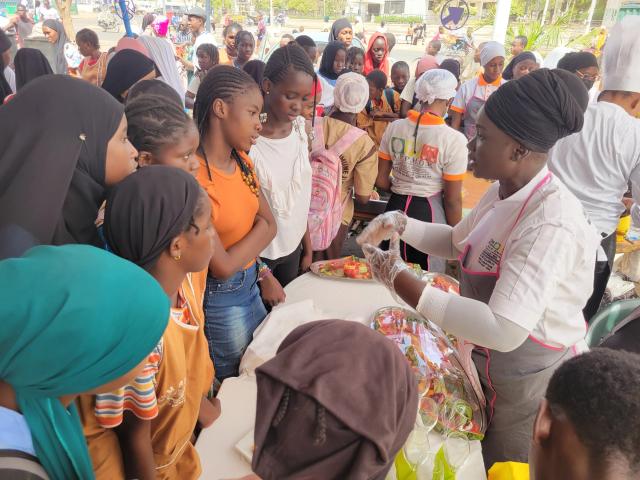In Senegal, LuxDev supports its partners in healthcare and social protection, vocational training and youth employment, water and sanitation, and inclusive governance.
LuxDev in Senegal
Luxembourg's cooperation with Senegal began in 1990 with the rehabilitation and expansion of healthcare infrastructure at Saint-Louis Hospital. This project marked the start of a relationship that has since grown and strengthened over the decades. In 1998, the two countries signed a general cooperation agreement, and in 2005, LuxDev established a representative office in Dakar.
Since then, four Indicative Cooperation Programmes have been implemented, focusing on key sectors such as healthcare, vocational training, access to clean water, and sanitation. With each programme cycle, the geographical scope of interventions has expanded, reaching an increasing number of beneficiaries.
Since 2018, the fourth Indicative Cooperation Programme has prioritised two key areas defined by Senegal and Luxembourg: healthcare and social protection, as well as vocational and technical training to improve employability. LuxDev works closely with national and regional stakeholders in Senegal to implement interventions in these sectors, ensuring alignment with the country’s policies and priorities.

© Yasmine Sweetlove
Challenges in Senegal
Senegal faces numerous development challenges.
-

Health
Public health in Senegal is burdened by major issues such as malaria, tuberculosis, and HIV/AIDS. The healthcare system struggles with a lack of qualified personnel and adequate infrastructure. Access to medical care remains unequal, especially in rural areas. Additionally, the social protection system is still in its early stages, leaving a large portion of the population without health coverage.
-

Water and sanitation
Access to clean water and proper sanitation remains a significant challenge, further intensified by rapid urbanisation, which increases pressure on water resources. While most urban populations have access to drinking water, pollution threatens its quality. Additionally, only a fraction of these populations benefit from improved sanitation facilities, contributing to the spread of waterborne diseases.
-

Education
Despite having a young and dynamic population, Senegal experiences high unemployment. The education and training systems do not always align with labour market needs, leaving many young people without the right skills for employment.
-
20% of children
are affected by malnutrition
-
30% of young graduates
are unemployed
Our activities in Senegal
To address Senegal’s complex challenges, LuxDev supports its local partners across four key areas: healthcare and social protection, vocational training and youth employment, water and sanitation, and inclusive governance.
Designed and implemented in close collaboration with local stakeholders, our interventions follow an integrated approach, aligned with Senegal’s national priorities for sustainable and inclusive development.
Significant investments are made to develop healthcare and education infrastructure. Training centres are being built, and healthcare facilities are being upgraded to ensure equitable access to services for all. At the same time, capacity-building initiatives engage local communities in managing water resources and education programmes, ensuring the long-term sustainability of these efforts. Involvement and partnership with the private sector are also central to our intervention strategies, maximising their impact and fostering innovation.
Gallery viewer
Key figures in Senegal
-
EUR 17,184,196
disbursed in Senegal in 2025













